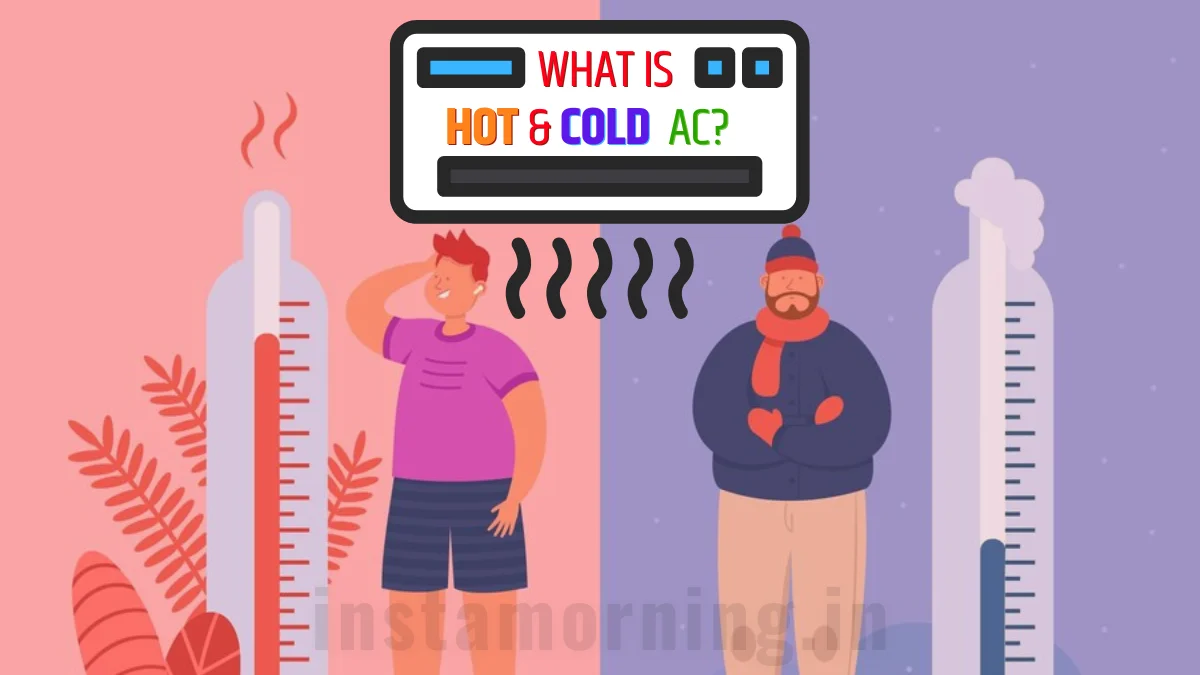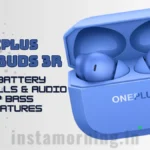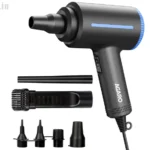Your Comfort, Your Choice: How to choose between a Hot and Cold AC And A traditional air conditioner.
What is a Hot and Cold AC?
Air conditioning (AC) systems have evolved beyond simple temperature control, with hot and cold AC units emerging as a versatile solution for year-round comfort. Check out our AC Buying Guide to choose the perfect AC for your home.
These advanced systems, also known as reverse cycle air conditioners, go beyond the conventional cooling capabilities of traditional ACs. Unlike their counterparts, hot and cold ACs provide both heating and cooling functions within a single unit.
The primary mechanism behind hot and cold ACs involves a reversible refrigeration cycle. During warmer months, the system extracts heat from the interior space, effectively cooling it down.
Also Read— Best Hot And Cold Split AC In India In 2024 Best Room Coolers
Conversely, in colder months, the same unit can reverse the process, extracting heat from the outside air and releasing it indoors, ensuring a cozy and warm atmosphere.
This dual functionality addresses the need for climate control in diverse weather conditions, making hot and cold ACs a comprehensive solution for regions experiencing distinct seasons.
Beyond the basic concept of temperature regulation, hot and cold ACs often incorporate advanced features such as energy efficiency, smart controls, and air purification.
Is Hot and Cold AC successful?
The success of hot and cold AC systems lies in their ability to provide year-round comfort efficiently and effectively. As these units offer both heating and cooling functionalities within a single system, they address the diverse needs of users throughout the changing seasons.
Their success is particularly evident in regions with significant temperature variations, where a traditional AC or heater alone may fall short.
Also Read— Best 1.5 Ton Split AC In India
One key factor contributing to the success of hot and cold ACs is their energy efficiency. By utilizing a reversible refrigeration cycle, these systems can extract or release heat as needed, minimizing energy consumption compared to using separate heating and cooling appliances.
This not only results in cost savings for users but also aligns with the growing emphasis on environmentally friendly solutions.
Moreover, the versatility of All Weather ACs makes them a practical choice for both residential and commercial spaces. Users appreciate the convenience of a single unit that can adapt to the temperature demands of any season, providing consistent comfort year-round.
As technology continues to advance, manufacturers are incorporating smart features into these systems, further enhancing their overall success by allowing users to control and monitor their AC units remotely.
Also Read— Best 1.5 Ton Window AC In India
Hot and cold AC vs Normal AC
The comparison between hot and cold AC units and traditional cooling systems brings to light the distinct advantages and considerations that users must weigh when selecting an air conditioning solution.
Traditional ACs, designed solely for cooling, have long been a staple in providing relief during hot weather. However, the emergence of hot and cold ACs introduces a new paradigm, offering year-round functionality that challenges the limitations of conventional cooling systems.

One crucial aspect to consider is the versatility of hot and cold AC units. While normal ACs focus on cooling alone, their counterparts can seamlessly switch between cooling and heating modes, ensuring comfort regardless of the external temperature.
This flexibility proves particularly beneficial in regions experiencing diverse weather patterns, where the ability to adapt to both hot summers and chilly winters becomes a valuable feature.
Also Read— Best Inverter AC In India
Energy efficiency is another pivotal factor in the comparison. Hot and cold AC systems leverage a single unit to manage temperature control, minimizing the need for separate cooling and heating devices.
This consolidated approach not only streamlines energy consumption but also reduces the environmental impact associated with running multiple appliances.
Should you buy a Hot and Cold AC or a Normal AC?
The decision between investing in a hot and cold AC or a traditional cooling system hinges on various factors, each influencing the overall comfort, efficiency, and cost-effectiveness of the chosen air conditioning solution.
Also Read — Best WiFi AC In India – Smart AC
One critical aspect to weigh is the climate of the region where the AC will be used. Hot and cold ACs shine in areas with distinct seasons, offering the versatility to handle both warm summers and chilly winters seamlessly. In contrast, normal ACs are well-suited for regions where the climate remains consistently hot, as their primary function is to cool indoor spaces efficiently.
Energy efficiency considerations also play a pivotal role in the decision-making process. Hot and cold AC units, with their dual functionality, can potentially reduce energy consumption by consolidating heating and cooling into a single system. This can translate into long-term cost savings and a reduced environmental footprint compared to running separate cooling and heating appliances.
Also Read — Best AC With Air Purifier In India
Here are a few reasons why people should buy a Hot and Cold AC over a normal AC:
- Year-round Comfort: Hot and cold ACs provide both heating and cooling functions in a single unit, ensuring comfort in both warm summers and chilly winters.
- Versatility: The ability to seamlessly switch between cooling and heating modes makes hot and cold ACs a practical choice, especially in regions with diverse weather patterns.
- Energy Efficiency: Hot and cold AC units, with their dual functionality, can potentially reduce energy consumption by consolidating heating and cooling into a single system, leading to long-term cost savings.
- Environmental Impact: The consolidated approach of hot and cold ACs not only streamlines energy consumption but also reduces the environmental impact associated with running separate cooling and heating appliances.
- Convenience: The convenience of a single unit that adapts to temperature demands throughout the year makes hot and cold ACs a user-friendly choice for residential and commercial spaces.
- Advanced Features: Hot and cold ACs often incorporate advanced features such as smart controls, enhancing the overall user experience and providing remote monitoring and control capabilities.
Additionally, factors such as upfront costs, maintenance requirements, and the availability of advanced features like smart controls should be taken into account in making an informed decision before buying.
Disclaimer: This article may contain affiliate links. If you purchase after clicking on them, InstaMorning may earn a small commission at no extra cost to you. Also note, that the mentioned products are picked on user ratings and InstaMorning is not responsible for the after-sale service of any products.
Frequently Asked Questions (FAQs)
How does a hot and cold AC work?
Are hot and cold ACs more energy efficient?
Are hot and cold ACs more expensive than traditional ACs?
Is a hot and cold AC right for me?
However, they may not be the best option for people who live in extremely cold or hot climates, as their heating or cooling capacity may be limited.
No posts























